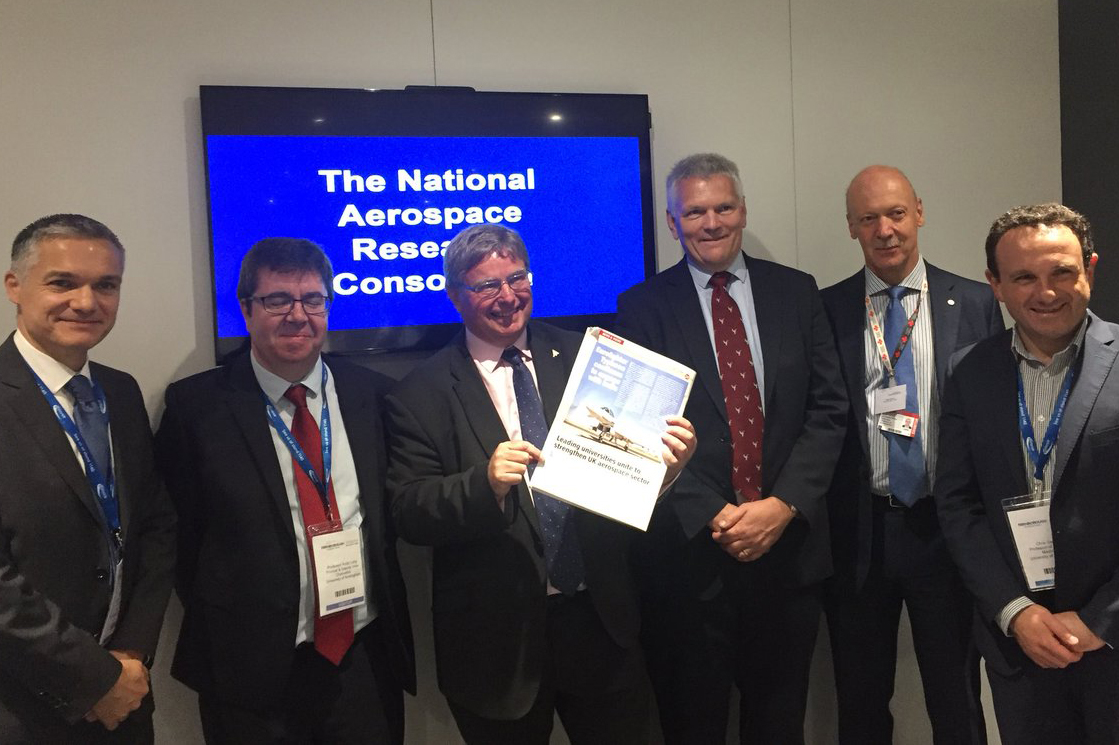Embracing the full aviation spectrum (airlines, aircraft, airspace and airports), the National Aerospace Research Consortium (NARC), announced at Farnborough International Airshow last week [Wednesday 18 July], will enhance the UK’s already leading position within the sector and provide a clear means of communication with equivalent national organisations and multi-national initiatives.
NARC will align itself with the Aerospace Technology Institute's established four technology pillars (Aircraft of the Future; Future Propulsion; Smart, Connected and Electric Aircraft of the Future; and Aero Structures of the Future) with an additional National Airborne Test stream.
Dr Simon Weeks, Chief Technology Officer of the Aerospace Technology Institute (ATI), said: "At the ATI, we welcome a strong and co-ordinated university research base that is able to support the aerospace sector and further develop the UK's international reputation for high quality research. The NARC initiative, led by a number of the UK's leading aerospace universities, represents a significant step forward in creating a national entity that can co-ordinate and promote the excellent work undertaken by our leading academic teams."
Professor Nishan Canagarajah, Pro Vice-Chancellor for Research at the University of Bristol, added: "As one of the UK's leading aerospace research universities, the University is delighted to be a founding member of the National Aerospace Research Consortium (NARC). This initiative is an excellent way for the UK's top universities to work together to provide the UK aerospace industry with access to world-leading research expertise, skills and facilities together with talented young research engineers."
The Consortium aims to create a UK-wide infrastructure of accessible, integrated and world- class research facilities to support each pillar. The universities that currently make up NARC have already started work on the Future Propulsion pillar with a collaborative proposal for a network of advanced electric and hybrid-electric propulsion development facilities.
NARC will also seek to enhance the flow of highly qualified aerospace engineers of the future through closer integration of graduate and postgraduate learning provision.
Through the combination of networked national facilities, integrated learning of the highest quality and a central point of access, NARC is aiming to make a significant contribution to the UK’s presence within the aerospace sector.
Aerospace Engineering at Bristol is one of the leading departments in the UK and is known for its work in fluids and aerodynamics, dynamics and composites. The department has strong links with industry, including Airbus and Rolls-Royce, and works closely with colleagues in Computer Science and Electrical Energy Management. These areas of expertise will enable the University to make a positive contribution to NARC activities across all the industrial needs ATI has identified.
The founding member universities of NARC are: University of Bristol; University of Cambridge; Cranfield University; Imperial College of Science, Technology and Medicine; University of Manchester; University of Nottingham; Queens University, Belfast; University of Sheffield; University of Southampton and the University of Strathclyde.
